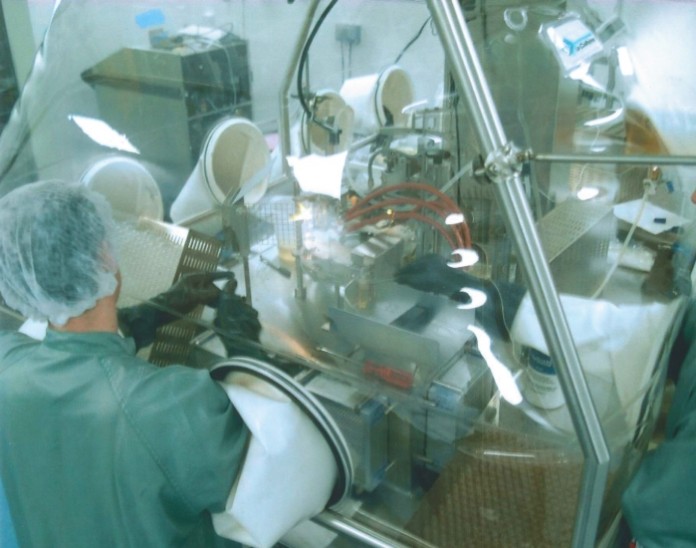An area of rural West Wales is set to become a leading supplier of high quality anti-venoms to Europe and Africa following a major investment by MicroPharm in new pharmaceutical manufacturing clean room facilities which is backed by the Welsh Government.
MicroPharm Ltd develops immunotherapy products to target infectious diseases and acute toxic conditions and currently produce two anti-venoms for the treatment of snakebites from the European common adder and the carpet viper in West Africa.
Its planned £2m expansion, supported by £150K from the Welsh Government, will see it open new facilities at Cilgerran while retaining its base in Newcastle Emlyn. The investment is expected to create 15 jobs and safeguard a further 14, bringing the total headcount to 51.
It means that MicroPharm will become a leading supplier of high quality anti-venoms to Europe and Africa, like Protherics UK Ltd, a BTG International group company based in Llandysul, who provide antivenin for North American pit viper envenomation in the USA.
The unique West Wales cluster includes Ig-Innovations Ltd, also based near Llandysul, which produces antibodies for supply to the research, diagnostic, biotech and pharmaceutical sector including MicroPharm, as well as direct sales.
Economy Secretary Ken Skates said: “It is a considerable achievement that this small area of rural West Wales is a world leader in what is an extremely specialised, highly competitive and highly valued field. It once again illustrates the breadth of expertise we have in Wales within the life sciences sector.
“MicroPharm is a key contributor to Wales’ expertise and I am delighted Welsh Government support will enable its planned expansion to go ahead immediately. The investment will provide the additional facilities required to meet the growing global demand for its products. It will also enable the company to capitalise on opportunities to increase its product range and support its on-going research to provide treatments for devastating diseases like Clostridium difficile Infection (CDI) and Ebola.
“This very important expansion project will further embed a specialist pharmaceutical R&D and manufacturing company in West Wales and provide opportunities for local people to access high quality jobs.”
Skills and Science Minister, Julie James added: “Wales’ life sciences sector has gone from strength to strength over recent years and this latest announcement is welcome news for both the local community, wider Welsh economy and global pharmaceutical marketplace.
“As a relatively small country Wales punches well above its weight when it comes to scientific developments and world-class research and this government remains committed to supporting innovative companies like MicroPharm to ensure this vitally important sector continues to grow in Wales.”
MicroPharm’s CEO, Ian Cameron, commented: “We have outgrown our existing facilities in Newcastle Emlyn and the new manufacturing facility at Cilgerran will provide a platform for the long term growth of the company. The Welsh Government has supported the growth of MicroPharm since its inception and we are grateful for the continued support”.
MicroPharm’s expertise lies in producing a range of immunotherapeutic products for clinical use – designed to treat acute, life threatening emergencies and required urgently either because no alternative exists or any alternatives are unsafe or ineffective.
In addition to anti-venoms, MicroPharm is also working on developing a ricin antitoxin having been awarded a contract, valued at up to £7m, last year by the Defence Science and Technology Laboratory (Dstl) on behalf of the Ministry of Defence (MOD). It involves the production of ovine antibodies to ricin and their further processing and manufacture into a product suitable for human use. Ricin is a deadly poison with no antidote currently available.
MicroPharm has a product pipeline of several new immunotherapeutic products for human and veterinary use ranging from early stage opportunities to clinical trials stage which are expected to come into the market from 2018-2021.



















